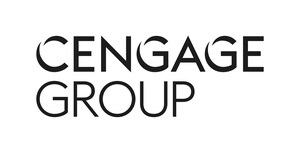- Half of graduates feel threatened by AI (46%) and question their workforce readiness (52%)
- 59% of employers say AI has caused them to prioritize different skills when hiring, including "uniquely human" skills
- Half of employers have dropped degree requirements for entry-level roles
BOSTON, July 20, 2023 /PRNewswire/ -- The job landscape has been completely transformed. In response to workplace transitions like The Great Resignation, Quiet Quitting and now the rise and adoption of artificial intelligence (AI), employer hiring habits continue to evolve with 50% of employers now admitting they've dropped 2- and 4-year degree requirements for entry-level positions (a 32% increase over 2022) and started prioritizing softer skills and previous job experience (66%).
And while these shifts signal a move toward skills-based hiring (over degree-based hiring), it also introduces new uncertainties for graduates.
According to Cengage Group's 2023 Employability Report – the third annual report surveying 1,000 graduates who completed a degree or non-degree program in the last 12 months and 1,000 U.S. hiring decisionmakers – the growth of emerging technologies, like generative AI, have a third of grads second-guessing their career choice. Additionally, more than half (52%) of graduates say competition from AI has them questioning how prepared they are for the workforce.
"The workplace has changed rapidly in the last few years, and now we are witnessing a new shift as AI begins to reshape worker productivity, job requirements, hiring habits and even entire industries," said Michael Hansen, CEO of Cengage Group. "With new technology comes both new uncertainties and new opportunities for the workforce, and educators and employers must do more to prepare today's workers for these technological shifts."
Data shows that educators still have work to do in preparing graduates. Just 41% of grads said their program taught them skills needed for their first job – down from 63% who said the same in 2022. Recent graduates report they are not getting enough preparation to develop "soft skills," something employers say they will prioritize more with the growth of AI. Nearly 3 in 5 grads (58%) believe closer alignment between employers and learning institutions would help them develop important workplace skills.
Additional findings include:
- The struggle for talent is still very real and has forced employers to do things differently. Half of employers (53%) struggle to find talent (down from 65% in 2022), which has improved their willingness to interview candidates with experience but no degree (66%; up from 53% in 2022). Additionally, employers are more open to upskilling with nearly half of employers (48%) admitting they will hire talent with some but not all the skills needed for a role and upskill them, and 17% open to finding and upskilling talent from within the company.
- Dropping degree requirements has increased grad confidence. With half of employers dropping degree requirements on entry-level job listings, grads are more confidently applying to jobs with 3 in 5 (61%) employers seeing an uptick in non-degree applicants. In fact, recent degree and non-degree graduates are feeling more confident regarding their qualifications to apply for entry-level jobs, with only one-third (33%) stating they felt underqualified, down significantly from the last two years in which roughly half of graduates felt underqualified.
- There's still work to be done to connect education to the workforce. Half of all graduates (49%) say their educational institution should be held accountable for placing them in jobs upon graduation, however fewer graduates gained important workforce experience before graduating. Less than half of graduates (47%) participated in an internship, externship or apprenticeship this year, compared with 63% in 2022. Of those graduates who did, more than a third (35%) did not receive any guidance from their school in finding the opportunity.
- The "Great Reskilling" is coming as employer priorities shift. With more than half of employers (57%) saying certain entry level jobs, teams and skills could be replaced by AI, they are calling for employees to upskill. More than two-thirds of employers (68%) say many of their employees will need to reskill or upskill in the next 3-5 years because of emerging technology and grads agree – 3 in 5 (61%) say they will need to develop or strengthen their digital skills due to AI. The good news for employers: graduates (65%) recognize that and say they need more training in working alongside new technology.
"No part of the workforce is immune to the changes AI will bring. Many workers will need to develop new skills to work alongside new technology or perhaps even find new careers as a result of AI disruption. As we collectively navigate these changes, we are laser-focused on helping people develop in demand skills and connect to sustainable employment," said Hansen.
For more information on the 2023 Cengage Group Graduate Employability Report, click here. To learn more about workforce training and career development, visit Cengage Group at www.cengagegroup.com.
Survey Methodology:
The findings in the Cengage Group 2023 Graduate Employability Report are the result of two surveys conducted by Cengage Group via the online platform Pollfish in June 2023. The graduate survey targeted 1,000 U.S. men and women between the ages of 18 and 65 who had completed an education program (ie., associate, bachelor's or graduate degree or vocational training or certification) for their perspectives on their recent experience seeking employment. The employer survey targeted 1,000 U.S. men and women between the ages of 18 and 65 who have hiring responsibilities within their organization for their views on determining a candidate's fitness for a specific role.
About Cengage Group
Cengage Group, a global education technology company serving millions of learners, provides affordable, quality digital products and services that equip students with the skills and competencies needed to be job ready. For more than 100 years, we have enabled the power and joy of learning with trusted, engaging content, and now, integrated digital platforms. We serve the higher education, workforce skills, secondary education, English language teaching and research markets worldwide. Through our scalable technology, including MindTap and Cengage Unlimited, we support all learners who seek to improve their lives and achieve their dreams through education. Visit us at www.cengagegroup.com or find us on LinkedIn or Twitter.
SOURCE Cengage Group

WANT YOUR COMPANY'S NEWS FEATURED ON PRNEWSWIRE.COM?
Newsrooms &
Influencers
Digital Media
Outlets
Journalists
Opted In






Share this article